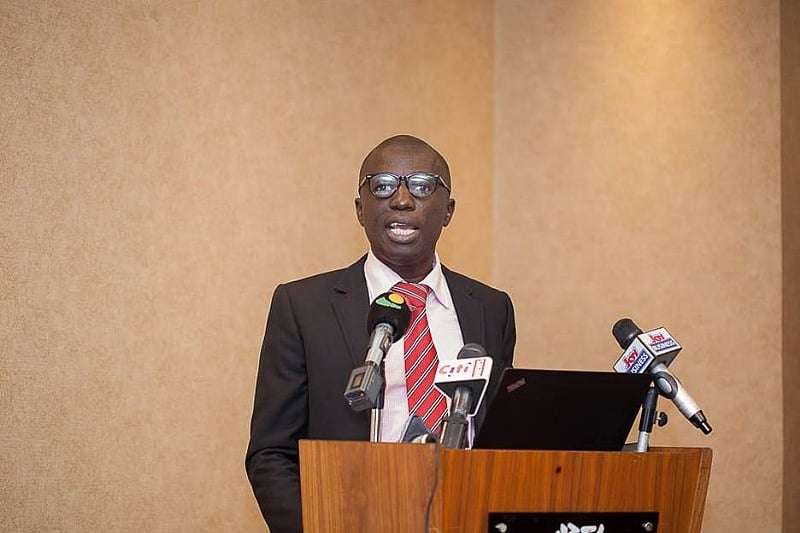Accra, Ghana – 8th May, 2025 – CUTS International, a leading policy research and advocacy organization, is calling for urgent and sweeping reforms to Ghana’s public sector recruitment system, citing pervasive opacity, politicization, and lack of meritocracy.
Appiah Kusi Adomako, West Africa Regional Director of CUTS International, highlighted the structural flaws in the country’s recruitment practices, describing the current system as “a game of political and social connections rather than merit.” According to him, although recruitment into Ministries, Departments, and Agencies (MDAs) is expected to be open, competitive, and transparent, the reality is far from this ideal.
“In practice, job openings at major public institutions like the Bank of Ghana, National Petroleum Authority, and Social Security and National Insurance Trust are rarely advertised publicly. The entire process is often hidden from view and driven by ‘protocol lists’ submitted by influential figures,” Adomako stated.
The situation, he notes, has created a culture of nepotism, secrecy, and unaccountability. The current system disadvantages the majority of qualified job seekers who lack political connections, particularly those from rural areas such as Damongo, Dambai, and Tamale. The absence of a centralized and digitized platform for public sector job postings further exacerbates this inequality, effectively excluding competent graduates who are outside major urban centers.
Speaking before a cross-section of the media, Mr Adomako opined that “this is not a matter of NDC or NPP. Since there is no clarity and objectivity in the process, given the chance, any future political party that is elected into government, say the Convention People’s Party (CPP), Great Consolidated Popular Party (GCPP) or Liberal Party of Ghana (LPG) or All People’s Congress (APC), will continue to current status quo. The only way to create a level playing field is to ensure a merit-based recruitment over favoritism.”
Mr. Adomako drew a stark contrast between the politicized civil service recruitment process and the relatively transparent procedures adopted by the security services, which emphasize merit, regional diversity, and national balance.
Adomako warned that the politicization of hiring deepens partisan loyalty within public institutions. “There is a growing perception that public sector employees owe allegiance to the political party that facilitated their employment. When governments change, these workers are often marginalized, leading incoming administrations to hire their own supporters in return,” he noted.
He further observed that this pattern has transformed tertiary education into a recruitment ground for political party foot soldiers rather than innovators, entrepreneurs, or critical thinkers. “The consequences are severe: declining professionalism, bloated payrolls, eroded public trust, and a disillusioned youth population struggling with unemployment and exclusion,” he added.
A Call to Action: CUTS Proposes Five Key Reforms
To address these systemic failings, CUTS International is urging the government, particularly the Ministry of Labour, Employment and Relations and the Public Services Commission (PSC), to undertake bold reforms:
Create a Centralized Recruitment Portal
A digital platform, modeled after systems in Kenya and India, should serve as the single entry point for all public sector job applications. This portal should be integrated with Ghana.gov to streamline access and accountability.
Mandatory Public Advertising of Vacancies
All public institutions must be mandated to publicly advertise job openings across newspapers, the centralized portal, and other media channels for a minimum of 30 days. This ensures transparency and equal opportunity.
Merit-Based Assessment and Interviews
The recruitment process should include standardized aptitude tests and competency-based interviews. Independent panels, free from political interference, must supervise these processes.
Annual National Recruitment Calendar
A publicly available recruitment calendar should be issued at the start of each year to promote predictability and discourage ad hoc hiring.
Digital Records and Annual Audits
All recruitment activities must be digitally recorded and audited annually. The audit reports should be publicly available, and the Auditor-General should play a proactive role in reviewing recruitment procedures.
Adomako emphasized that these reforms are both necessary and achievable. “If we can digitize BECE results, SHS placements, and university admissions, there is no reason we cannot do the same for public sector recruitment,” he stated.
CUTS International is urging the Public Services Commission to seize this opportunity to rebuild trust and professionalism in Ghana’s public sector. “A merit-based, transparent, and accountable recruitment system is essential not just for fairness, but for national development and effective service delivery,” Adomako concluded.
Picture: Appiah Kusi Adomako, Esq


